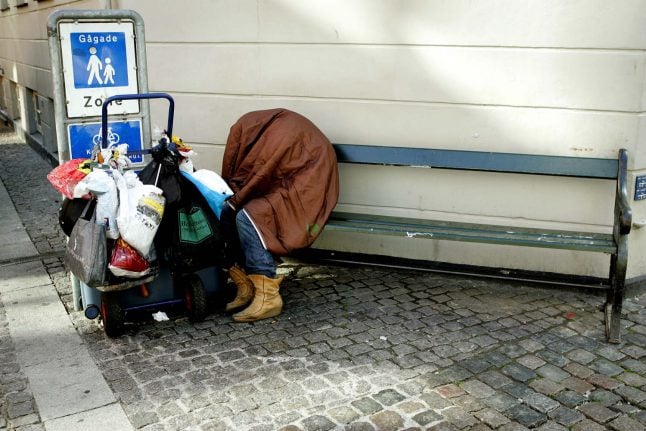The total number of Danes considered to be living in poverty has more than doubled from 18,650 in 2002 to 44,141 in 2015, according to the analysis by thinktank Economic Council of the Labour Movement (Arbejderbevægelsens Erhvervsråd, ECLM).
A ten percent increase was recorded alone from 2014 to 2015, according to the report, which is based on figures from Statistics Denmark.
Head of analysis at ECLM Jonas Schytz Juul told newspaper Information that the increase was primarily due to reductions in social welfare (kontanthjælp) payments and support for immigrants implemented in the early 2000s.
These cuts were abolished by the Social Democrat-led government of the early 2010s, but poverty levels continue to increase, reports Information.
“There is a group of young people that do not start further education, and it is this group that is increasingly poor,” Juul told the newspaper.
ECLM defines someone as living in poverty if they have earned under 50 percent of Denmark’s median income for three consecutive years, are not a student and have less than 100,000 kroner ($14,300) in savings.
These were also the state’s own criteria until the Liberal (Venstre) party government decided to abolish an official poverty definition in 2015.
Since figures are only available until 2015, it is not yet possible to see the effects of more recent curbs on social support, such as the new limit on welfare payments (kontanthjælpsloft); the so-called ‘225 hour rule’ introducing a criteria for minimum hours to be worked in order to maintain the right to social welfare payments; and further reductions to refugee social support (integrationsydelsen), reports Information.
READ ALSO: More Danish children are living in poverty: Unicef
Juul wrote on Twitter that the kontanthjælpsloft – which potentially reduces significantly incomes for single-parent families – would cause “a large increase in child poverty in coming years”.
Fattigdom fordoblet siden 2002. Kontanthjælpsloftet vil give stor stigning i børnefattigdommen de kommende år #dkpol https://t.co/QdXBgQMfP5
— Jonas Schytz Juul (@jonasschytzjuul) April 18, 2017
Acting political spokesperson Lousie Schack Elholm of Venstre said that the figures did not necessarily represent a wider problem.
“The cause could be that more people are working for themselves and have a lower income in the first year. If that is the reason then I don’t think there is a problem,” Schack told Information.
Statistics Denmark figures show a five percent reduction in numbers of self-employed between 2008 and 2015.


 Please whitelist us to continue reading.
Please whitelist us to continue reading.